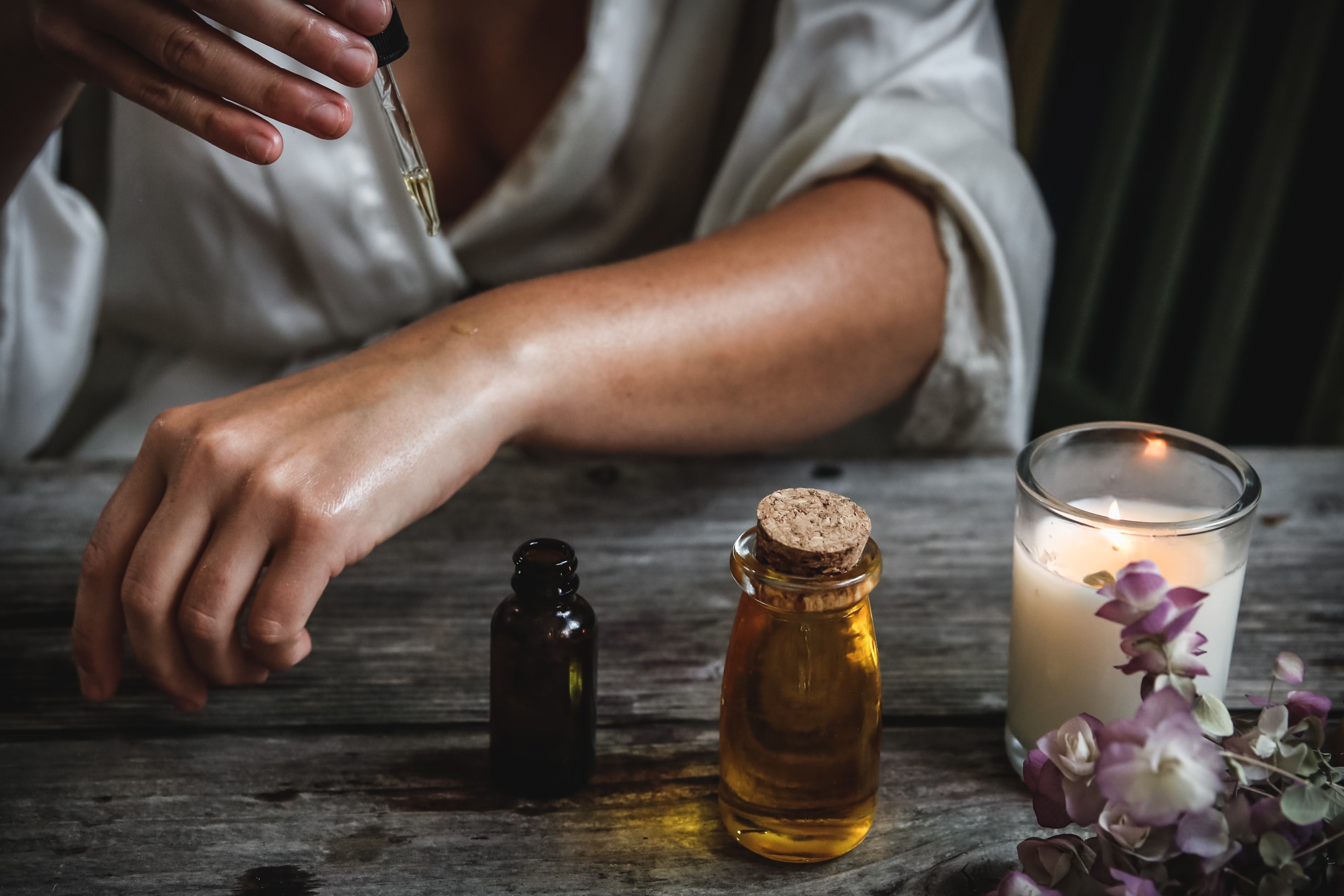Seabuckthorn Oil: Is it Superior to Rosehip Rosehip oil may easily be the most popular therapeutic skincare oil on the market, superseding jojoba, coconut, grapeseed, almond, argan, marula, and olive. But few people are aware of a possible contender for the spot of number one.
Before we explore the benefit of seabuckthorn and how it stacks up to rosehip, we should investigate the therapeutic benefits of rosehip, which is also a highly recommended, nutrient-rich skincare option.
Rosehip oil is derived from the seeds of the fruit on rose bushes – this oil is now widely used as a topical skincare oil and treasured for the high content of fatty acids and antioxidants. These natural compounds can help improve skin elasticity and reduce visible signs of aging – fine lines, dry skin, wrinkles, sun damage, and discoloration. Rosehip is also touted for the ability to more effectively moisturize the skin than traditional moisturizers, without causing the staining or heaviness associated with a lot of cosmetic creams and lotions.
The main components of rosehip are essential fatty acids, and these are naturally anti-inflammatory and moisturizing. Rosehip is also extraordinarily high in vitamin C and antioxidant compounds like carotenoids.
Rosehip is not new – it has been used since prehistoric times, and more interestingly, by Egyptians, Mayans, and Native Americans for a variety of health concerns, infections, oral health, diseases, and skin applications. The Romans used rosehip to dress animal bite wounds. In other preparations, it was used as a jam. The healing properties of rosehip are noted in old Icelandic texts, and by many other ancient cultures.
The interest in rosehip oil as a potential for cosmetics and skincare in North America did not rejuvenate until the 1980s and 1990’s when more clinical research showed the benefits of rosehip for sensitive skin types and the impact it had on reducing fine lines, wrinkles, and the appearance of scar tissue.
Many proponents of commercial skincare and cosmetics products will suggest that there are no actual scientific studies to demonstrate rosehip oil’s effectiveness on any claimed benefits – but this is not exactly true.
There are quite a few studies that show promising results (including one from 1983 conducted at the University of Santiago) that shows rosehip oil may promote healing, reduce scar appearance, reduce the appearance of stretch marks, even skin complexion and reduce fine lines and wrinkles.
The global in “vitro fertilization (IVF) market” size is prophesized to reach USD 36.39 billion by 2026, with a CAGR 10.1% by 2026. This is attributable to the increasing cases of infertility among people worldwide. This is more common in males than female partners
Okay, so rosehip oil is great – what about seabuckthorn?
For starters, seabuckthorn contains over 190 bioactive compounds such as plant sterols, flavonoids, carotenoids, retinoids, and fatty acids – including the uncommon “omega-7.”
Omega-7 is not commonly found among plants. This fatty acid is known to promote skin repair and cellular regeneration, as well as work as an aide in soothing skin and skin conditions like psoriasis and eczema.
Seabuckthorn also contains the essential fatty acids omega-3 & omega-6 in a perfect ratio of 1:1, which is the ideal ratio for human health. Seabuckthorn is also often sold as a supplement and liquid extract (by the brand Sibu) which can aid in whole-body wellness and contribute to reduced cellular inflammation and reduce oxidative stress. Seabuckthorn has a strong positive effect on the cardiovascular system in trials, and this seems to be associated to the wealth of beneficial oils and compounds found in the oils and juices.
Omega-7 is not present in rosehip oil, nor is this ideal combination of essential fatty acids in the same ratio.
There are several particular flavonoids of note in seabuckthorn that exhibit strong anti-cancer properties that create a cytotoxic reaction and promote the death of these cancer cells, along with prevention of growth and spread. These such compounds are flavonoids like quercetin, isorhamnetin, and kaempferol.
These same compounds have been shown to have neuroprotective effects and cardiovascular benefits – seabuckthorn oils, and extract seems to be protective against atherosclerosis as well as a cardiovascular disease by protecting endothelial cells from oxidative stress and LDL “bad” cholesterol.
Not only that but there was a strong correlation between cognition and supplementation with seabuckthorn in a study conducted on mice. In a study that fed mice a high-fat, high-fructose diet, it seemed that seabuckthorn supplementation alleviated neurological symptoms that were present in the control group after 16 weeks, along with dramatically reducing body weight gain and preventing insulin resistance. In behavioral tests, seabuckthorn supplementation prevented neuron loss and memory impairment.
While much has been made about seabuckthorn’s internal benefits, let us get back to skincare and how seabuckthorn proves as beneficial for the skin as rosehip! The plant sterols in seabuckthorn can help with skin elasticity, hydration, smooth skin, and complexion – seabuckthorn is particularly rich in beta-sitosterol and campesterol. The unique combination of essential fatty acids also lends seabuckthorn restorative and regenerative properties for the health and integrity of the skin. The fatty acid gamma-linolenic acid helps to promote blood circulation, which can aid in nourishment and oxygen supply. This can help promote a healthier appearance, tone, and overall complexion.
In summary, for skin: seabuckthorn can help reduce oxidative stress, fight free radical damage, promote skin elasticity and healthy aging, reduce fine lines, scars, and wrinkles, help address skin conditions like eczema, psoriasis, acne, and dermatitis, moisturize and soothe the skin, protect against UV rays, improve circulation, and promote a healthy skin tone.
So, seabuckthorn, great internally for whole-body health and wellness and topically for skin concerns of all kinds. Rosehip and seabuckthorn are both highly potent and antioxidant rich oils that would benefit any skincare routine, and in the case of seabuckthorn – can even be supplemented internally. While it is hard to suggest one oil may be superior to another, it is clear that both have a wide array of benefits beyond just reducing the appearance of lines and wrinkles. While seabuckthorn may not be as widely hyped up as rosehip oil, it shows itself to be just as powerful (if not more) than the well-known rosehip, and just as deserving of praise.






